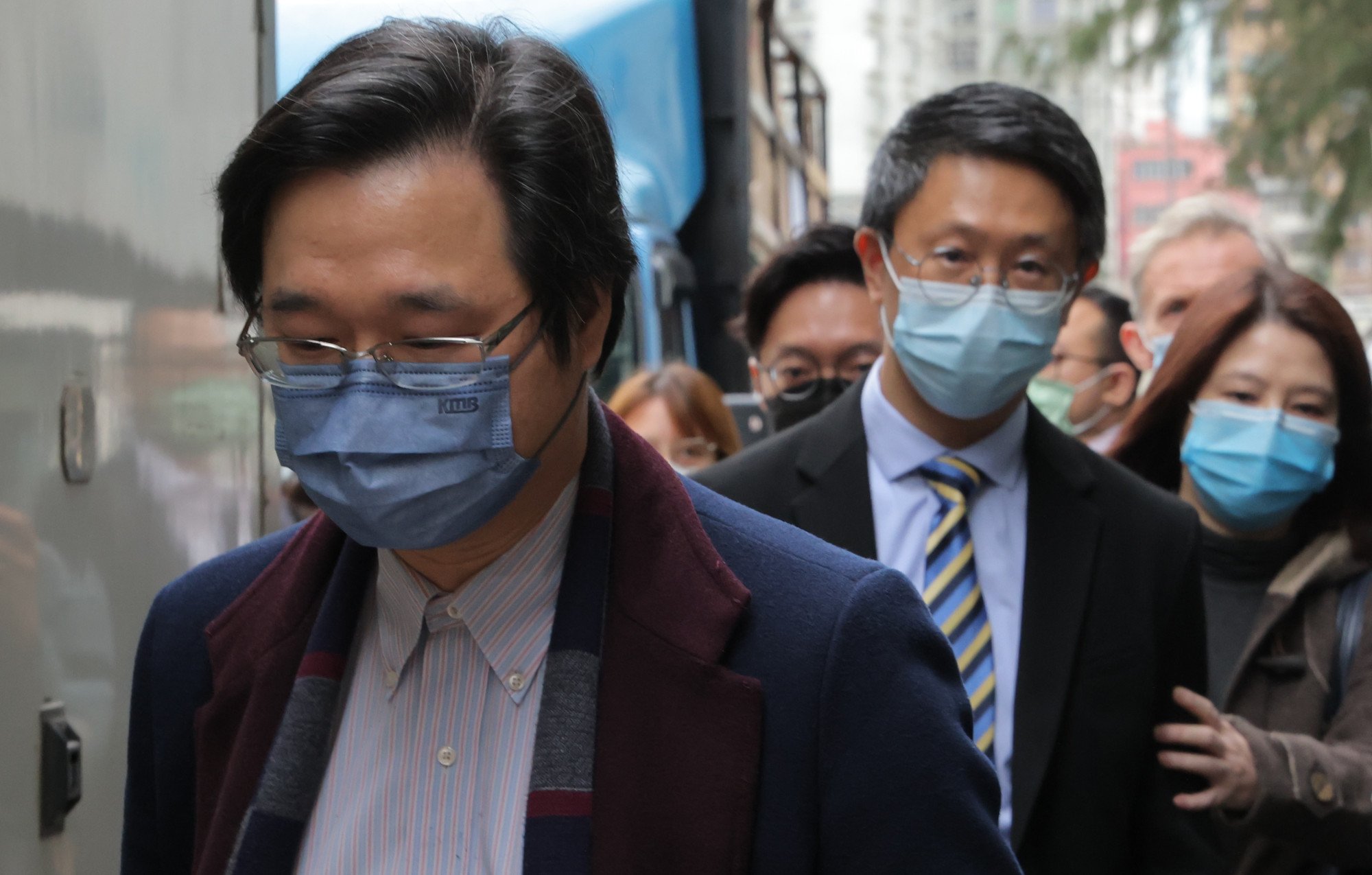
Hong Kong doctor in liver patient death case says he failed to prescribe key drug as he had been ‘distracted’
- Lam Chi-kwan admits he did not prescribe antiviral drug as he was distracted by ‘phone ringing’ and ‘people entering the room’ to see him
- His patient, Tang Kwai-sze, mother of two, succumbed to liver failure at United Christian Hospital in Kwun Tong on August 26, 2017
A Hong Kong public hospital doctor linked to a liver disease patient’s high-profile death seven years ago told a Coroner’s Court on Monday that he did not prescribe a necessary antiviral drug during consultation because he was “distracted”.
Lam Chi-kwan admitted that he failed to prescribe an antiviral drug to Tang Kwai-sze, a hepatitis B carrier, on January 20, 2017, although he did give her an immunosuppressive steroids drug.
“During our consultation and prescription process, I believe I was facing distractions such as my phone ringing and people entering the room to look for me,” he told the inquest before Coroner Monica Chow Wai-choo and a five-person jury.
“As doctors, we are not allowed to switch off our phones or lock the doors of our consultation rooms.”
Lam admitted that he knew that prescribing antivirals to hepatitis B patients alongside a large dosage of steroids would prevent a relapse of the virus, and failing to do so would have consequences including liver failure.

About 7 to 8 per cent of the virus carriers could develop symptoms of hepatitis if they were taking a high dose of steroids without antiviral drugs, Lam said citing local data.
Tang, a mother of two, succumbed to liver failure at United Christian Hospital in Kwun Tong on August 26, 2017, at the age of 44, despite receiving two separate organ donations following a high-profile appeal to the public.
Lam, who was then an associate consultant of internal medicine at the hospital, said he had prescribed Tang a large dosage of steroids as part of her treatment for her chronic kidney disease after she did not respond well to another drug.
“I explained the pros and cons of taking steroids as part of her treatment, to which she said she understood and agreed,” he said. “However, as I was distracted, I left out the prescription of antiviral drugs.”
Manslaughter case against 2 Hong Kong doctors linked to patient’s death dropped
On the first of a 15-day inquest, Lam told the court that the Clinical Management System, an information system used by the Hospital Authority, had reminded him twice about Tang’s hepatitis B medical history.
“There was a pop-up alert that mentioned that Tang had hepatitis B once I opened her file, and another alert in the clinical note,” Lam said.
“I agree that I should have gone through her case again since I was distracted, but I cannot answer if I did that or not.”
The court heard that Tang was admitted to the emergency room department for jaundice at the United Christian Hospital on April 1, 2017, and was transferred to Queen Mary Hospital four days later, where doctors ordered a liver transplant immediately.
Lam said he only realised his mistake about a week after Tang was transferred.
Hong Kong judge sets strict bail terms for 2 doctors on manslaughter charge
Last August, the Department of Justice dropped a manslaughter case against Lam and another doctor at the hospital, Chan Siu-kim, over Tang’s death for failing to prescribe an antiviral drug.
The decision paved the way for a separate inquest in the Coroner’s Court.
The Medical Council found the pair guilty of professional misconduct in September 2021. They were removed from the general register for five and three months respectively, but the sentence was suspended for 36 and 18 months.

